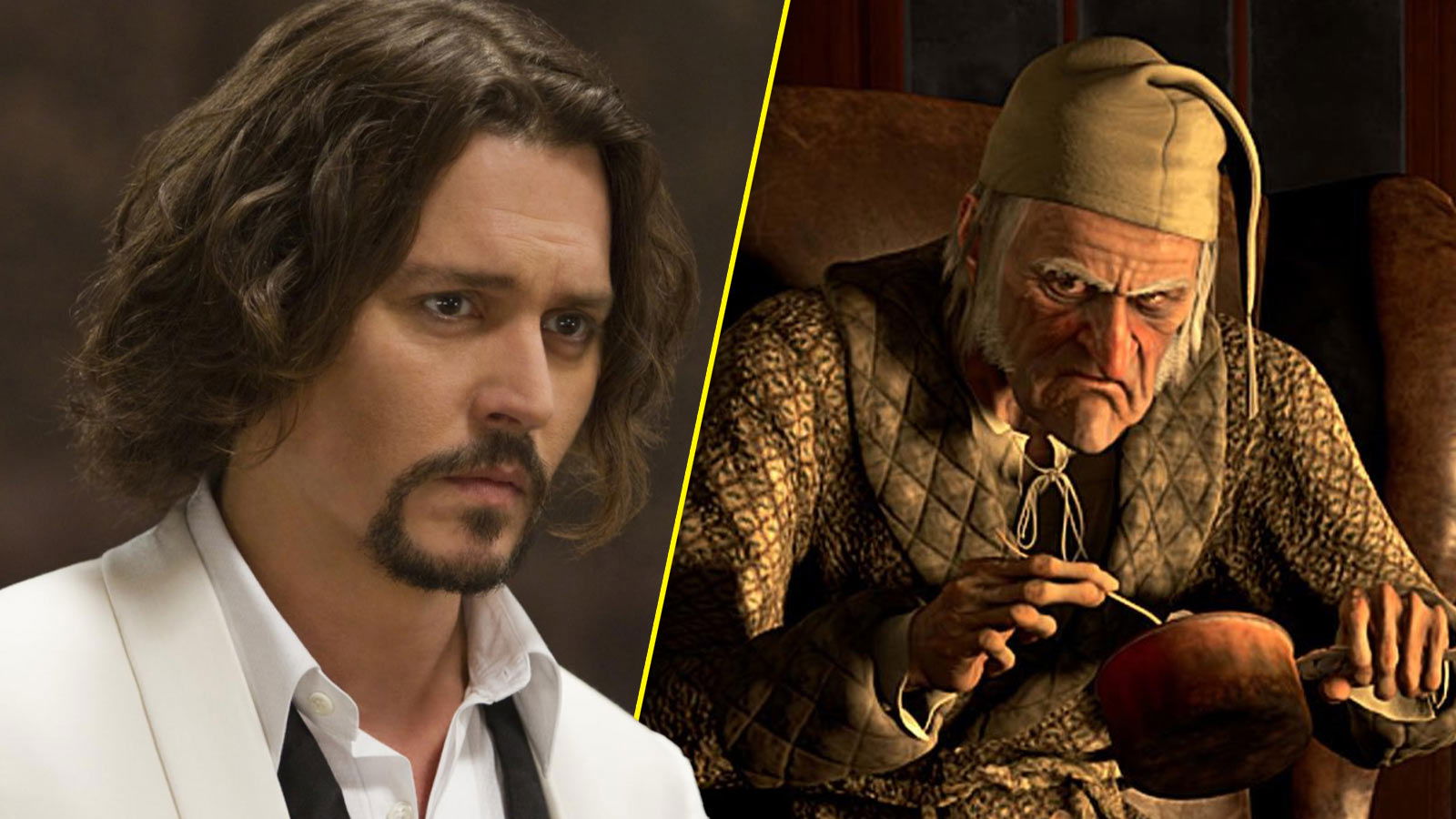🎬 Johnny Depp in “A Christmas Carol” (2026) – The Ghosts Within

In 2026, Johnny Depp returns not merely as an actor, but as an echo of human regret and redemption. In A Christmas Carol, directed by the visionary Ti West, he steps into the cold, trembling soul of Ebenezer Scrooge — not as a caricature of greed, but as a haunted man wrestling with time itself.

Depp’s Scrooge is not simply mean; he is fractured. His cruelty feels carved by years of disappointment, each sneer hiding a memory he cannot forgive. The film opens not in the glow of Victorian charm but in a world dimly lit by guilt and candlelight — a London that feels alive yet ghostly, as if it, too, remembers every sin of its citizens.
Ti West brings his trademark atmospheric dread, fusing gothic horror with Dickensian melancholy. The result is not a festive tale, but a fever dream where morality and mortality intertwine. Every clock tick, every flicker of candlelight feels like a ghost whispering from another life.
Johnny Depp embodies this decay beautifully. His eyes — hollow yet searching — carry the weight of a man running out of both excuses and time. His voice, at once trembling and sharp, delivers familiar lines with an unsettling intimacy, as if Scrooge is speaking not to others, but to his own conscience.

When the Ghost of Christmas Past appears, the film slips into surrealism. Memories unfold like broken reels of film — distorted, trembling, painful. The ghost is less a figure than an emotion, shimmering like light through water. West’s vision turns nostalgia into terror, reminding us how our happiest moments can rot into sorrow when left unhealed.
By the time the Ghost of Christmas Present arrives, we feel the pulse of something sacred. The music swells with an eerie beauty, blending church choirs with distant whispers. Depp’s Scrooge begins to tremble, not from fear, but from awakening — a man watching the wreckage of his own choices in real time.
But it’s the Ghost of Christmas Yet to Come that seals the film’s power. West turns this moment into a descent — not into hell, but into silence. The future isn’t a fiery punishment; it’s emptiness. Depp stands alone in a world that’s forgotten him, surrounded by snow, tombstones, and the echo of a name that no longer matters.

Visually, the film is breathtaking. The cinematography glows with contrast — gold light bleeding into shadow, warm memories freezing into blue frost. It’s a palette that mirrors Scrooge’s transformation: from the heat of guilt to the cold of isolation, then finally, the fragile warmth of redemption.
By the final act, Depp’s performance becomes transcendent. The redemption of Scrooge feels less like moral correction and more like resurrection. His eyes, once hollow, now flicker with tears and light — as though every ghost he’s met has given him back a piece of his soul.
Ti West’s A Christmas Carol isn’t just another retelling. It’s a haunting reflection on what it means to live with our ghosts — and how love, even in the final hour, can thaw the longest winter. Johnny Depp doesn’t just play Scrooge; he becomes the ghost of every regret we’ve ever tried to forget.
A chilling, poetic masterpiece — one that turns Dickens’ morality into a mirror, and makes us all wonder what spirits would visit us if we dared to listen.
Related movies:











